Smooth-billed Anis formerly bred in Loxahatchee but have been absent for about 15 years. This pair of anis were first located about three weeks previously and their nest was subsequently discovered near the Marsh Trail observation tower in the largest of the two trees to the right of this photo (click on photos for larger size and additional images):
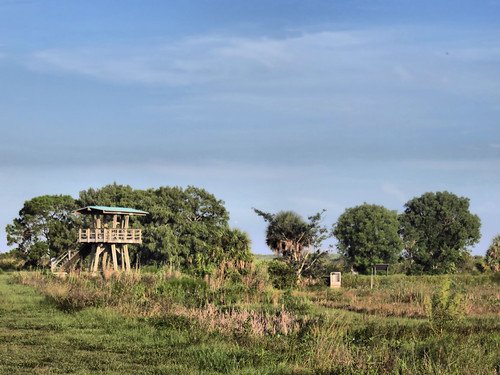
We were immediately rewarded with great views of one member of the pair. The other was sometimes visible through the foliage and is presumably incubating.
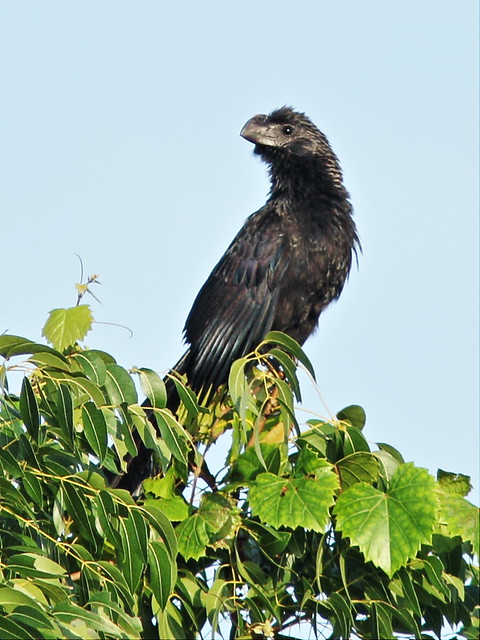
The ani is classified as a member of the cuckoo (Cuculidae) family. Its closest relative is the Hoatzin. Like the latter, the ani is normally a cooperative breeder, with several families sharing a nest and helping raise the young. Indeed, more than one female has been known to lay eggs in a nest as it is being built. The dominant female often will bury the eggs of those deposited earlier, incorporating them into the nest structure and assuring that they will not hatch.
The ani's large bill is most interesting, as it is arched and parrot-like. Overall it looks like a large blackbird (14.5 inches/37 centimeters), about the length of our Boat-tailed Grackle. Its long tail hangs down and appears to be loosely attached and its wings are short and broad.
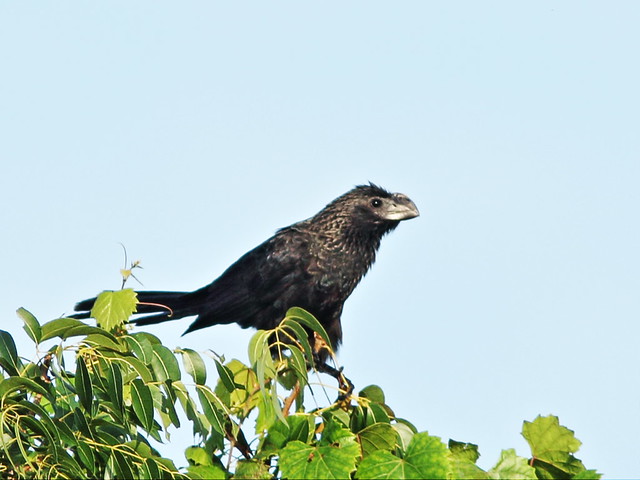
Bill detail:
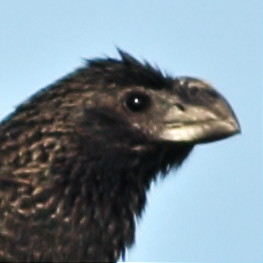
Residents of south Florida and the Caribbean, they were much more abundant locally about 30-40 years ago. Severe winters in the 1970s and habitat loss due to development are partly blamed for their reduced numbers. Now they are found in the USA almost exclusively in southern Florida, in scattered locations in the Florida Keys and along the coasts of the Gulf of Mexico, the Atlantic Ocean and Lake Okeechobee. They feed primarily on insects and small lizards and frogs, but also eat fruit, especially during the dry season. They typically nest at the beginning of the rainy season (summer, here in Florida) when insects are most abundant.
We did not stay very long as we had afternoon obligations, but had time to look for threatened Snail Kites, including this one with color-coded leg bands placed by researchers. This species depends heavily upon declining numbers of Apple Snails, but is adapting to another large exotic snail that is displacing the native species.
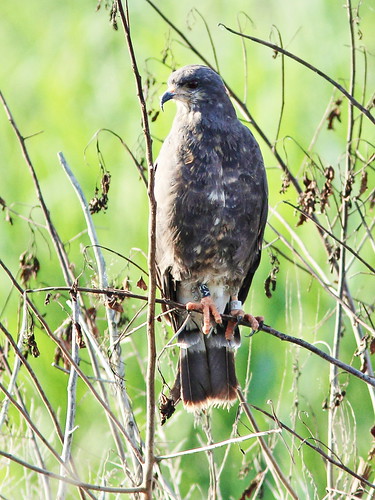
The Snail Kit's narrow and sharply curved bill is specialized for extracting the flesh from the snails:
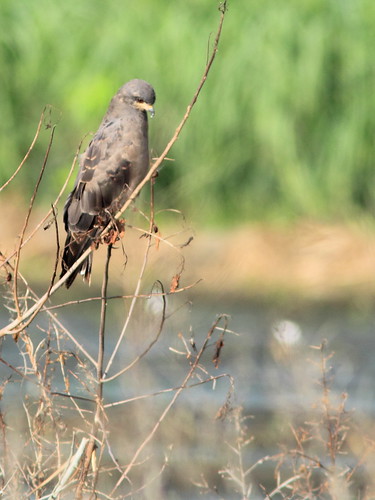
This Little Blue Heron is transitioning from its first-year white to the adult plumage that gives it its name:
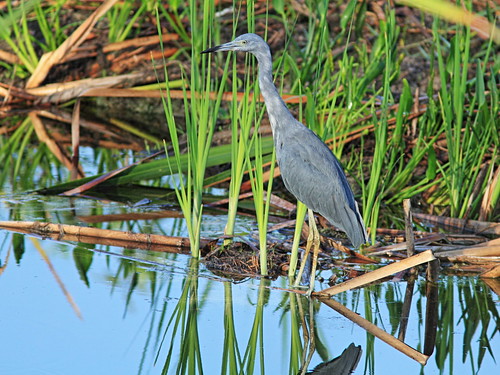
Wood Storks and a Great Blue Heron roosted in treetops along the trail. The two young storks have fuzzy heads and lighter bills than the adults:
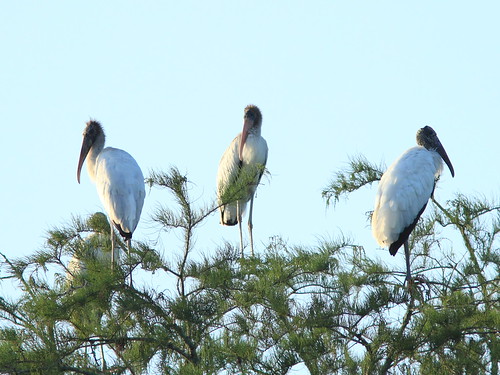
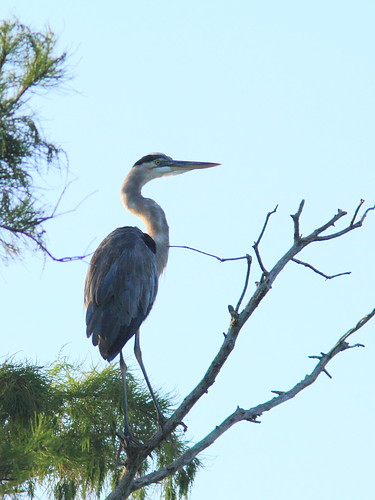
Black-necked Stilts and Glossy Ibises foraged in a flooded agricultural field near the entrance of the Refuge:
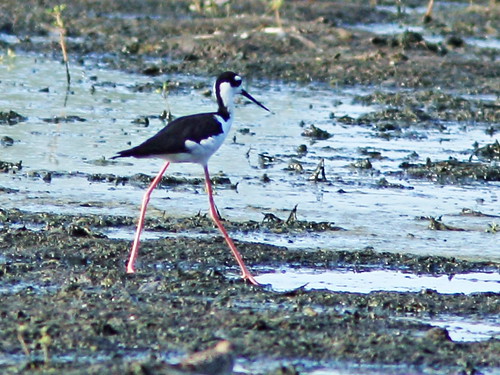
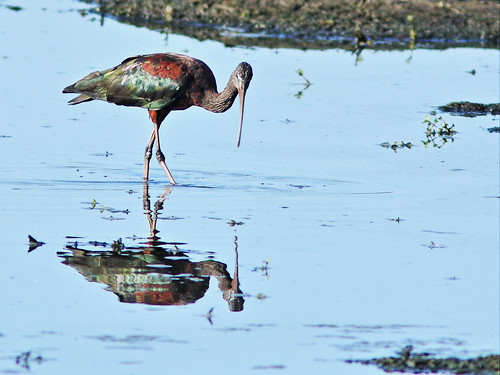
A Passion Flower attracted a Honeybee:
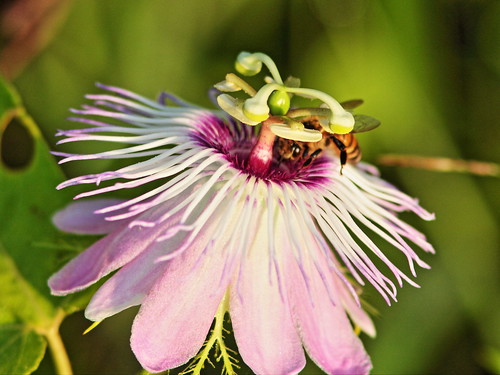
We proceeded to Green Cay wetlands, a waste water treatment area that is a great birding "hotspot."
The 1.5 miles (2.4 kilometers) of boardwalk are well-maintained:
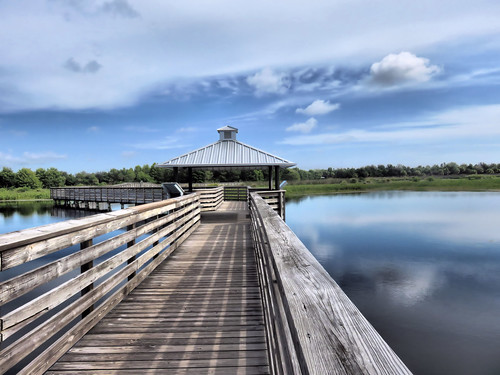
That's Mary Lou in the blue shirt, well in front of me (as usual):
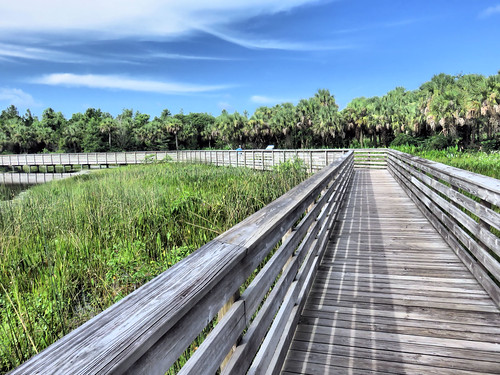
Purple Gallinules were particularly abundant, both adults...
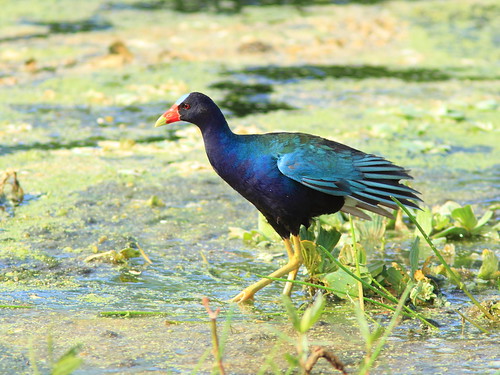
...and immature birds:
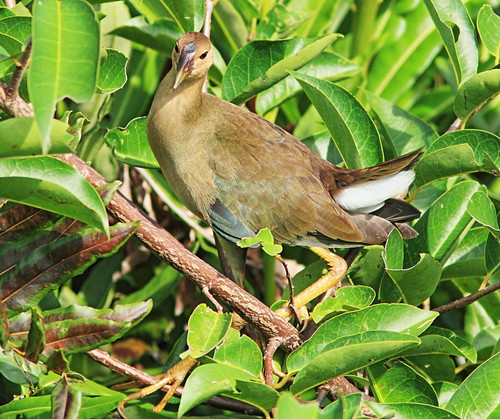
A Snowy Egret pranced on golden slippers in the mud flats:
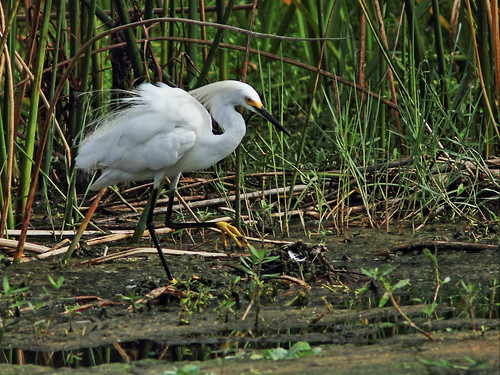
Green Herons foraged patiently, ...
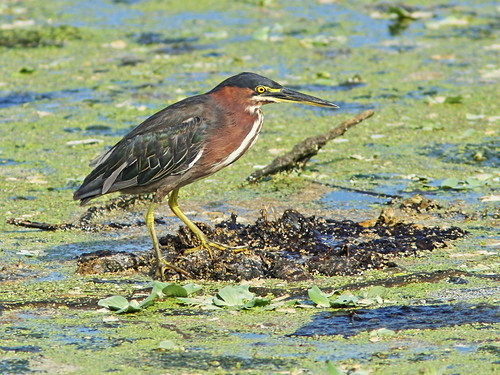
... and Anhingas dried their wings and preened:
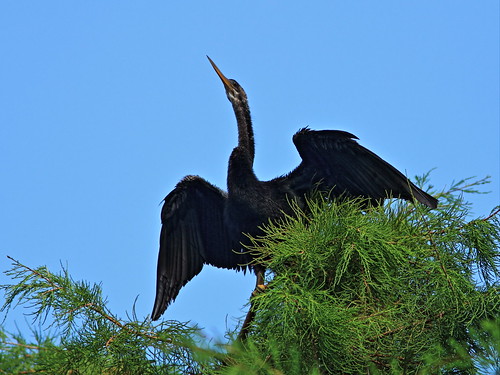
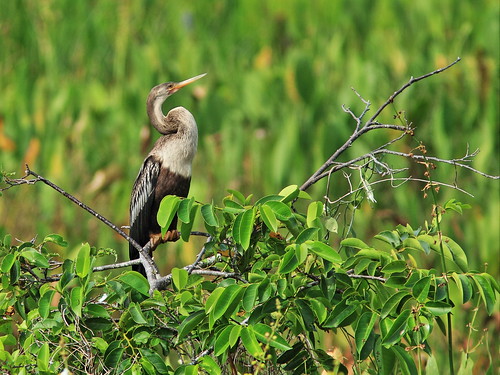
Striking red native Swamp Hibiscus bloomed along the boardwalk, ...
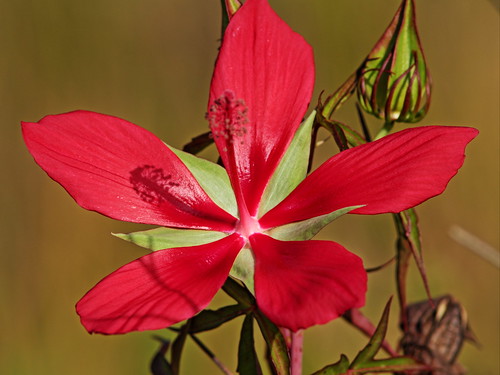
...contrasting with white Marsh Lilies..
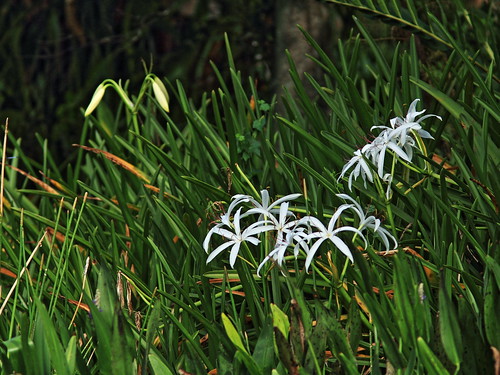
...and purple flowers of Pickerel-weed:
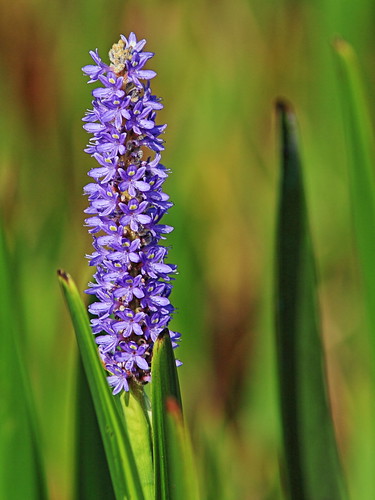
A Tricolored Heron posed so nicely that I was inspired to render it in HDR images by creating and layering different exposures from single RAW photos (I used this technique for the landscapes included in this post):

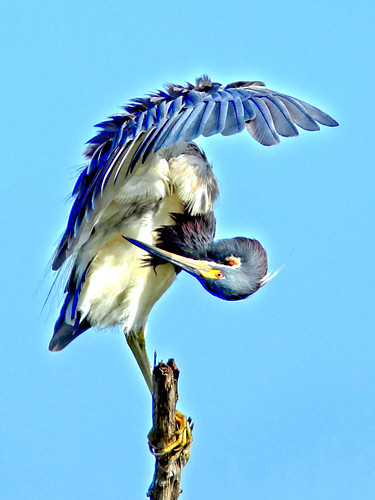
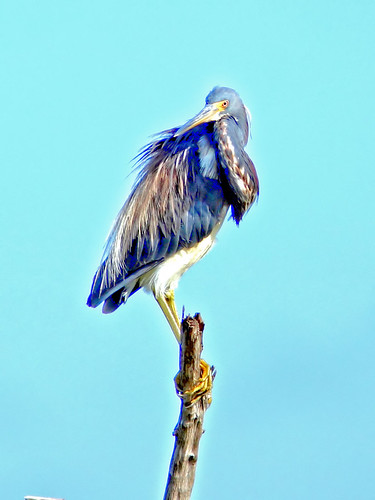
It was only mid-morning, but thunderheads loomed to the south over the Nature Center when we departed. We arrived home in the rain:
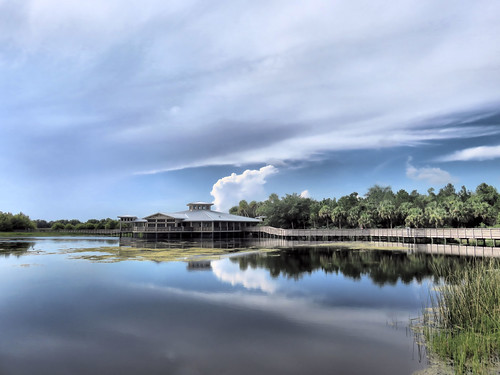
= = = = = = = = = = = = = = =
Linking to Misty's CAMERA CRITTERS,
Linking to Eileen's SATURDAY'S CRITTERS,
Linking to GOOD FENCES by Tex (Theresa).
Linking to WEEKEND REFLECTIONS by James
Linking to BirdD'Pot by Anni
Linking to Wild Bird Wednesday by Stewart
Linking to I Heart Macro by Laura
________________________________________________
Please visit the links to all these memes to see some excellent photos on display